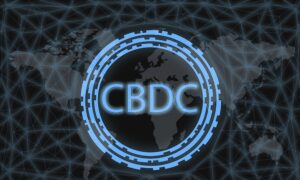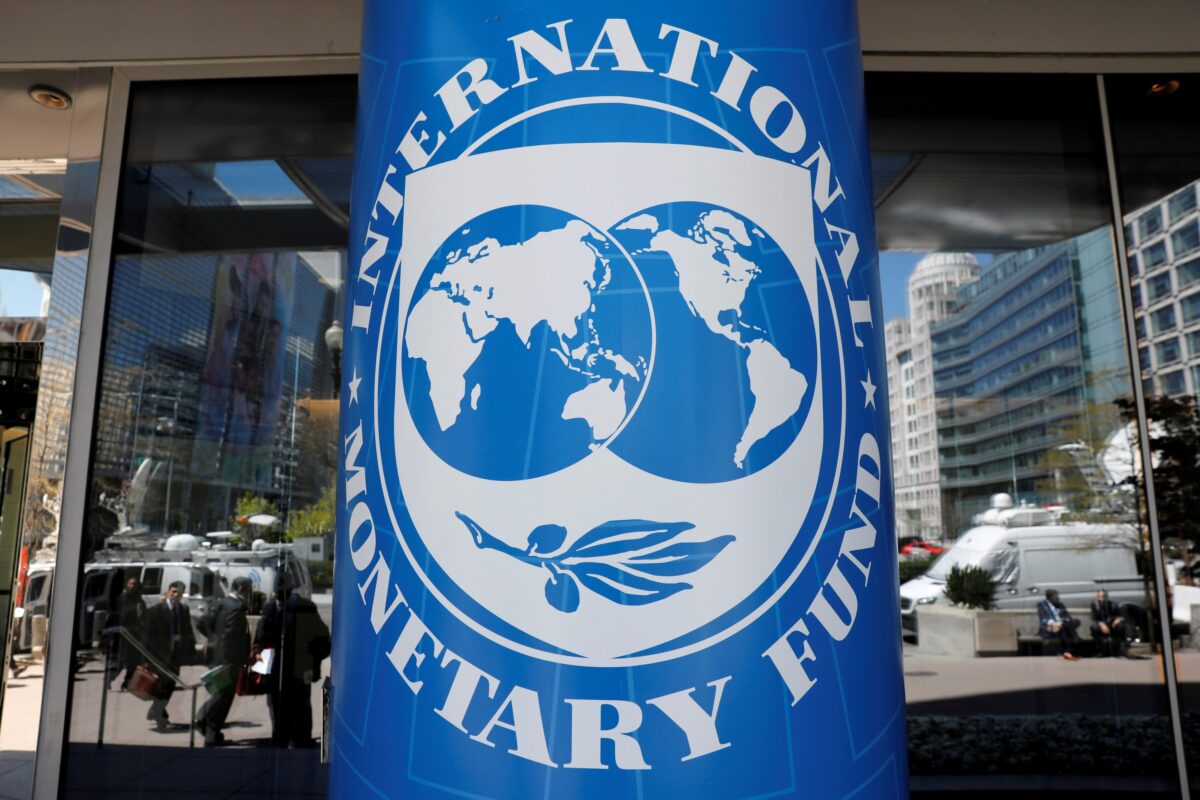A Digital Dollar Is Coming—Americans Should Be Concerned
CommentaryIn 1861, the U.S. government began issuing paper money. Since then, for more than a century and a half, cash has been king. Very soon, however, there will be a new king in town. This king will be known as the digital dollar. A large number of Americans still believe, somewhat naively, that cryptocurrencies are the future of finance. They’re not. Although some of the more respectable cryptocurrencies serve some purpose for a small percentage of humanity, for the vast majority of the world’s 7.75 billion people, everyday individuals with everyday problems, they don’t. More importantly, they never will. They are, by and large, a plaything with no actual purpose. Contrary to popular belief, central banks and central governments—not Satoshi Nakamoto or Michael Saylor—dictate the future of finance. That’s why central bank digital currencies (CBDCs) are the next step in the evolution of money. CBDCs have the potential to reduce poverty, tackle economic crime, and underpin global financial systems. This is not my opinion; this is the opinion of the people at Davos. In August this year, the World Economic Forum (WEF)—an independent international organization behind “The Great Reset”—released a blog post outlining the potential upsides and downsides of CBDCs. Although the authors discussed a couple of negatives, the vast majority of the post focuses on the supposed benefits. Unlike cryptocurrencies, which are decentralized and designed for privacy, CBDCs are centralized and public. CBDCs are, in many ways, the antithesis of cryptocurrencies; they are the antithesis of privacy. In the post, the WEF argues that CBDCs have the potential to address global poverty. How so? By offering the world’s 1.7 billion “unbanked” adults access to financial services. However, researchers at the Consultative Group to Assist the Poor, an independent think tank designed to empower the world’s poorest people, have argued otherwise. For the poor, they insist, cash is still king. Many of the worst off have no desire to swap cash for digital alternatives. “The bottom line,” according to the authors, “is that the poor largely live in the cash economy. Reaching them with financial services requires more than just having e-money or a CBDC on a phone.” It requires a number of other systems, including “last-mile distribution networks and liquidity management to bridge the digital and cash economies.” The Atlantic Council’s Central Bank Digital Currency Tracker estimates that 112 countries are actively researching CBDCs or developing their own digital form of central bank money. One of those countries is the United States. Recently, during an appearance at the International Monetary Fund’s (IMF) annual meeting, when asked about the need for CBDCs, U.S. Treasury Secretary Janet Yellen said they were “certainly worth getting involved in developing.” Jerome Powell, chairman of the U.S. Federal Reserve, certainly agrees. Speaking at a Banque de France (Bank of France) event, Powell insisted that a digital dollar would be both “identity verified” and “not anonymous.” International Monetary Fund logo outside the headquarters building during the IMF/World Bank spring meeting in Washington on April 20, 2018. (Yuri Gripas/Reuters) The days of anonymous purchases via cash are coming to an end. Powell’s comments clearly indicate that if and when a digital dollar is introduced, it will be linked to a digital ID system. As the author Izabella Kaminska wrote last year, “When money goes ID-based, one also has to consider the broader parameters of the potential data creep.” One also has to consider the broader parameters of the potential invasions of privacy. After all, when a government combines a centralized public payment system with a digital ID system, the idea of privacy disappears. Moreover, as the commentator Tim Hinchliffe recently noted, with help from the WEF, governments around the world are busy linking digital ID schemes to disparate issues like climate change (carbon footprint trackers), COVID-19 (vaccinated or unvaccinated?), and CBDCs. It’s not difficult to imagine a world where every U.S. citizen will be required to have a digital ID to carry out a number of— if not all—online transactions and perhaps even a social credit score. All in the name of safety, of course. However, as Hinchliffe, a man who has been sounding the alarm on digital IDs for years, stressed, such identification systems have a lot more to do with control than safety. They encompass “everything that makes you unique in the digital realm,” he cautioned. Digital IDs create a system that “consolidate all of your most personal intimate data, including which websites you visit, your online purchases, health records, financial accounts, and who you’re friends with on social media.” Digital IDs will undoubtedly be linked with a person’s financial transactions, as well as their social media activity. Furthermore, digital IDs could certainly be used by both publ

Commentary
In 1861, the U.S. government began issuing paper money. Since then, for more than a century and a half, cash has been king. Very soon, however, there will be a new king in town. This king will be known as the digital dollar.
A large number of Americans still believe, somewhat naively, that cryptocurrencies are the future of finance. They’re not. Although some of the more respectable cryptocurrencies serve some purpose for a small percentage of humanity, for the vast majority of the world’s 7.75 billion people, everyday individuals with everyday problems, they don’t. More importantly, they never will. They are, by and large, a plaything with no actual purpose. Contrary to popular belief, central banks and central governments—not Satoshi Nakamoto or Michael Saylor—dictate the future of finance. That’s why central bank digital currencies (CBDCs) are the next step in the evolution of money.
CBDCs have the potential to reduce poverty, tackle economic crime, and underpin global financial systems. This is not my opinion; this is the opinion of the people at Davos. In August this year, the World Economic Forum (WEF)—an independent international organization behind “The Great Reset”—released a blog post outlining the potential upsides and downsides of CBDCs. Although the authors discussed a couple of negatives, the vast majority of the post focuses on the supposed benefits. Unlike cryptocurrencies, which are decentralized and designed for privacy, CBDCs are centralized and public. CBDCs are, in many ways, the antithesis of cryptocurrencies; they are the antithesis of privacy.
In the post, the WEF argues that CBDCs have the potential to address global poverty. How so? By offering the world’s 1.7 billion “unbanked” adults access to financial services. However, researchers at the Consultative Group to Assist the Poor, an independent think tank designed to empower the world’s poorest people, have argued otherwise.
For the poor, they insist, cash is still king. Many of the worst off have no desire to swap cash for digital alternatives. “The bottom line,” according to the authors, “is that the poor largely live in the cash economy. Reaching them with financial services requires more than just having e-money or a CBDC on a phone.” It requires a number of other systems, including “last-mile distribution networks and liquidity management to bridge the digital and cash economies.”
The Atlantic Council’s Central Bank Digital Currency Tracker estimates that 112 countries are actively researching CBDCs or developing their own digital form of central bank money. One of those countries is the United States.
Recently, during an appearance at the International Monetary Fund’s (IMF) annual meeting, when asked about the need for CBDCs, U.S. Treasury Secretary Janet Yellen said they were “certainly worth getting involved in developing.” Jerome Powell, chairman of the U.S. Federal Reserve, certainly agrees. Speaking at a Banque de France (Bank of France) event, Powell insisted that a digital dollar would be both “identity verified” and “not anonymous.”

The days of anonymous purchases via cash are coming to an end. Powell’s comments clearly indicate that if and when a digital dollar is introduced, it will be linked to a digital ID system.
As the author Izabella Kaminska wrote last year, “When money goes ID-based, one also has to consider the broader parameters of the potential data creep.” One also has to consider the broader parameters of the potential invasions of privacy. After all, when a government combines a centralized public payment system with a digital ID system, the idea of privacy disappears.
Moreover, as the commentator Tim Hinchliffe recently noted, with help from the WEF, governments around the world are busy linking digital ID schemes to disparate issues like climate change (carbon footprint trackers), COVID-19 (vaccinated or unvaccinated?), and CBDCs. It’s not difficult to imagine a world where every U.S. citizen will be required to have a digital ID to carry out a number of— if not all—online transactions and perhaps even a social credit score. All in the name of safety, of course.
However, as Hinchliffe, a man who has been sounding the alarm on digital IDs for years, stressed, such identification systems have a lot more to do with control than safety. They encompass “everything that makes you unique in the digital realm,” he cautioned. Digital IDs create a system that “consolidate all of your most personal intimate data, including which websites you visit, your online purchases, health records, financial accounts, and who you’re friends with on social media.”
Digital IDs will undoubtedly be linked with a person’s financial transactions, as well as their social media activity. Furthermore, digital IDs could certainly be used by both public and private entities to deny Americans access to certain services.
We already live in a world where major financial players target or threaten to target very specific individuals for harboring very specific viewpoints. When a digital dollar and the accompanying ID are introduced (or enforced), expect rates of censorship and coercion to skyrocket. Resistance, I’m afraid, may prove to be futile.
Views expressed in this article are the opinions of the author and do not necessarily reflect the views of The Epoch Times.












